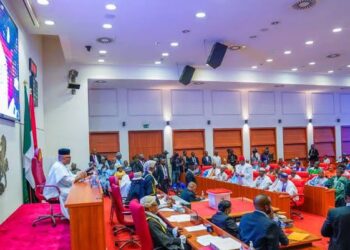This ongoing Covid-19 pandemic has forced the hands of governments around the world to impose a lockdown on movements, activities and businesses. It has had such an impact on the telecommunication sector, especially as they have noted fluctuations in their revenue generation.
Data segment has blossomed whilst revenue from Voice segment continues to suffer. Overall, there seem to have been more negatives than positives for Airtel who for Q3 2020, recorded a profit after tax position of $261m, 21.1% worse off than their position in the previous year.
Analysis from the financial statement does indicate that this was largely due to one-off transactions in the prior year and increased finance costs amongst other things.
READ: 6 managers, 5 name changes, the journey from Econet to Airtel
Airtel and data
Airtel’s swivel to data came quite late. Unlike its counterparts, MTN and Co, who embraced and quickly established a presence with the 4G broadband in 2016, Airtel joined the party in 2018 and had to wrestle for a significant portion of market share in the “data bundle” space. Presently, Airtel Nigeria isn’t doing too badly, as they have exhibited such aggressiveness in the market to make “data” easily one of its most lucrative operating segments.
Data yielded as high as 31.6% of Airtel’s combined revenue according to Q3 reports. Revenue from data segment particularly, increased by 13.8% to $2.870m. Obviously, the telecom giants have continued to rack up impressive numbers in the last few years and by their recent activities, entertain plans to intensify this growth even further.
- Take for instance, just recently, Airtel scored itself another 10 years in the Nigerian market. The company announced last month that its application for the renewal of its spectrum licenses was approved in December 2020.
- 16.9 million active data subscribers chose the network in 2017. By March 2020, that figure doubled to 35.4 million. This does not necessarily speak to the efficiency and superiority of the network provider, not entirely anyway. Instead, it is seemingly suggestive of Airtel’s resilience and aggressiveness in the telecom sector. They are determined to compete, thrive and continue investments within and beyond Nigeria to its African counterparts.
READ: Devaluation hurts Airtel Nigeria’s revenue as data revenues grow by 40%
Attention and renewed drive are fully directed towards data and mobile money now and who could blame them. Contemporary times have put telecom services and reliable connectivity at the core of the daily lives of customers. Be it work-from-home, virtual classrooms or digital entertainment, telecom networks have become major drivers for doing most things from within the confines of our homes. But is all these happening at the expense of the voice segment which had hitherto been a pretty reliable source of revenue?
Only 10.4% of total revenue was derived from the voice segment in Q3 2020. Even though voice revenue continues to show growth thus far up by 14.2% in the 9 months period, there is the expectation that this increase will continue at a decreasing rate until it inevitably culminates in a negative.
READ MORE: MTN reports 23% rise in FinTech revenue to launch cash deposits and withdrawals
Every telecom network as a matter of fact is shaping up to harness more from this “data” market opportunity the consequence of the Covid-19 pandemic has created.
The major challenge presently facing Airtel in Nigeria is the new SIM registration rules by the federal government. Airtel’s customer base in Africa increased by 11% to 118.9million. This is a fundamental factor to their increased penetration across mobile data and mobile money usage in and around the continent. The present limitation in SIM registration by the government could hamper this recent growth trajectory Airtel enjoys from its data revenue.
The Chief executive officer Raghunath Mandava shared his thoughts on this, he said “…In part this is due to our continued delivery of strong customer growth in Q3, despite the introduction mid-December of additional customer registration requirements in Nigeria. This has meant a temporary halt to the ability of all operators in the country to onboard new customers. But we are working closely with the government to ensure that all our subscribers provide their valid National Identification Numbers (NINs) and update their SIM registration records, such that disruption is minimised.”
It remains to be seen how badly the impact of this would be on Airtel Nigeria’s Q4 results or how Airtel plans to cushion the effects of the worst-case scenario playing out.





















